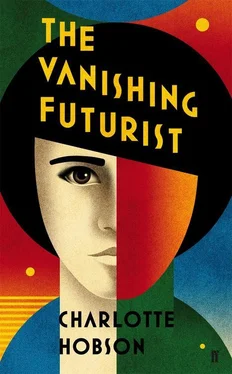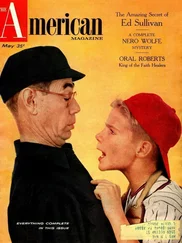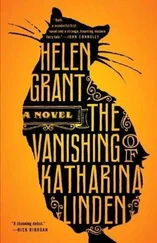And yet… and yet… don’t give up. History may not advance in the swift straight lines that the early Soviet artists envisaged. But surely the cynics who claim it moves in circles are just as foolish. If it does seem to repeat itself, if we do seem to arrive back at the same place again and again – the outbreak of war, the counter-Revolution – we are still in a slightly better position each time. We have the experience of our previous passes.
As I see it, the IRT’s achievement was to embody, just for a fleeting moment, Slavkin’s greatest insight. His concept of Atomic Communism describes the fundamental nature of reality in our universe, in which with every conscious thought, every action, each individual influences the world around him or her. If we give up on this future, in this intricately connected world, we stand to lose everything. Yet even the most powerless and insignificant among us can trigger vast transfomations. A poor boy from Galilee imagined a society in which outcasts and prostitutes were the equals of kings, and set in motion a social revolution that is still playing out today. The Constructivists in the dark winters of War Communism envisaged the design of the modern world. Now a defenceless scientist and his wife, Andrei Sakharov and Yelena Bonner, are shaking the foundations of the Soviet Union with their simple demands for cooperation and freedom of thought.
‘Fortunately,’ as Andrei Sakharov has written, ‘the future is unpredictable and also – because of quantum effects – uncertain.’
Despite or, rather, because of the fact that the future is unknowable, each of us bears a responsibility towards it. If all that our imagination can summon up is some limp, apathetic, cynical vision of a world just like the one in which we now live, then frankly that’s all we deserve.
An image floats back to me: the first weeks of the IRT, and all of us are lying together on the lawn at Gagarinsky Lane, gazing at the first stars, and the smell of dry grass is in the air – the end of summer – and Nikita is speaking:
‘For better or worse, we are creating the future here, in our minds. Each time we allow ourselves to imagine a harmonious world, we bring it closer. Just share your thoughts with us… You know the answer, if only you can discover it within yourself. Inside your imagination lies the blueprint for the future. How, why, what you will into being – this is the choice that confronts you, and all of us.’
This book has taken me years to write and the patience of saints has been put to the test. Very many thanks and a deep bow to Neil Belton, Georgia Garrett, Hannah Griffiths, Sarah Savitt, Samantha Matthews, Alex Russell, Will Hobson, Emma O’Bryen, Jonathan Tetley, Roland Chambers, Clem Cecil, Emily Irwin, Victoria Millar, Anna Benn, Julian Reilly, Bojana Mojsova, Sophie Poklewski-Koziell, Wim Peers, Alexander Hoare, Jessica and Charles Thomas, Leslie Hewitt, Peter France, Anna Gunin, Alexander Gunin, and above all to my dearest Philip.
If Gerty’s family was anxious about her decision to work for the Kobelevs, she could at least reassure them that she would not be the only Miss in Moscow. A steady trickle of enterprising girls set off to Russia before the war, drawn by high wages and generous treatment from their Anglophile employers, as well as the promise of adventure. Russia was after all one of the fastest-growing economies in Europe at the time, as well as Britain’s ally in the Triple Entente – while the Tsar, the very twin of his cousin George V, had at last taken the first steps towards constitutional reform. A century on, we look back at 1914 and see a country on the brink of inevitable disintegration, yet many more experienced political commentators than Gerty missed the signs of the coming upheavals. Before the war, an alternative future did perhaps still exist for the Russian Empire.
It’s quite possible, however, that Gerty’s family would have been alarmed by reports of another Russian revolution, in the arts rather than in politics, which was already shocking audiences all over the world. Since the 1890s Russia had been experiencing a kind of Modernist Renaissance. As its industrial development drew it into the economy of Europe, so its cultural life became more and more closely linked with that of the West, both influenced by and increasingly influencing European culture. Artists of every discipline threw themselves into the modern experiment with form, coupled with an almost ecstatic belief in human creativity and the unity of all the arts. Diaghilev, Nijinsky, Prokofiev, Stravinsky, Vrubel, Bakst, Malevich, Kandinsky, Bely, Blok, Akhmatova, Mandelstam, Pasternak, Eisenstein, Stanislavsky, Meyerhold are just a few of the brilliant and wildly varied talents of this period, whose work – one thinks of Malevich’s Black Square (1915) or Nijinsky’s L’Après-midi d’un faune (1912), the birth of modern dance, in which a faun masturbates over a scarf – still looks challenging today.
The Futurists crashed onto the literary stage in 1912, with a manifesto called ‘A Slap in the Face of Public Taste’, which joyfully abused and rejected all previous Russian literature. They were a group of art students turned rock-star poets – swaggering, glamorous, publicity-hungry, their every pose designed for maximum shock value. In their firmly materialist world view there was one attitude which amounted almost to a religion – a belief in the power of art not just to depict, but to transform . The avant-garde’s answer to the problems of Russia was Art itself, with its capacity to unite mankind and to transmute the base metals of our flawed world. Their creations were their contribution to the Revolution; by imagining the future they were performing the alchemy that would transform the present.
Vladimir Mayakovsky, probably the most famous of the Futurists, poured his poetic genius into the direct, funny, vulgar language of the streets. Cocky barrow boy crossed with tragic poet, he made himself the hero of his poetry and his life – a supersized ‘handsome twenty-two-year-old’ with ‘no senile tenderness’, who straddled the universe – chatted to the sun, man to man, walked a tiny Napoleon on a leash and marched up to heaven to threaten a mouldering old God (who, of course, was nowhere to be found). He was, his poetry suggested, a representative of a Promethean new breed of men, typical of the age, who with modern technology would crush nature and build Utopia.
If Mayakovsky was the pin-up of the group, the gentle, ascetic Velimir Khlebnikov was considered by his contemporaries to be the most brilliant. At a Futurist carnival in Petrograd in 1917 he was borne through the streets on a throne with the inscription ‘Chairman of the World’. His ‘transrational’ poetry is a kaleidoscope of neologisms, arcane words and esoteric references – his own attempt at ‘the language of the birds’, an ancient, ideal language that was capable of expressing the pure essence of meaning.
While a political Revolution was still remote, nihilism was the literary avant-garde’s default position. As Mayakovsky later summed up in his first long poem, the idea was: ‘Down with your Love! Down with your Art! Down with your system! Down with your religion!’ Yet before 1917, apart from the brawls that often concluded their readings, the Futurists’ idea of bringing down the system was entirely artistic and performative. They talked of fusing Art and Life, dragging the artist out of his garret and placing him in the midst of people’s ordinary working lives; but at this stage little more than token gestures were possible – dressing eccentrically, for example, in a yellow blouse instead of a jacket and tie, wearing spoons or radishes in their buttonholes, and painting on unframed panels rather than old-fashioned canvases.
Читать дальше





![Майкл Муркок - Спящая волшебница / The Sleeping Sorceress [= Участь Белого Волка, Рыцарь Хаоса, The Vanishing Tower]](/books/327544/majkl-murkok-spyachaya-volshebnica-the-sleeping-sorc-thumb.webp)






